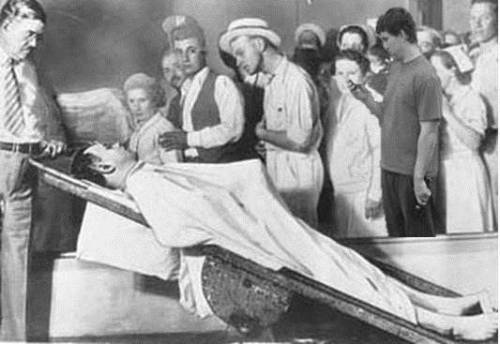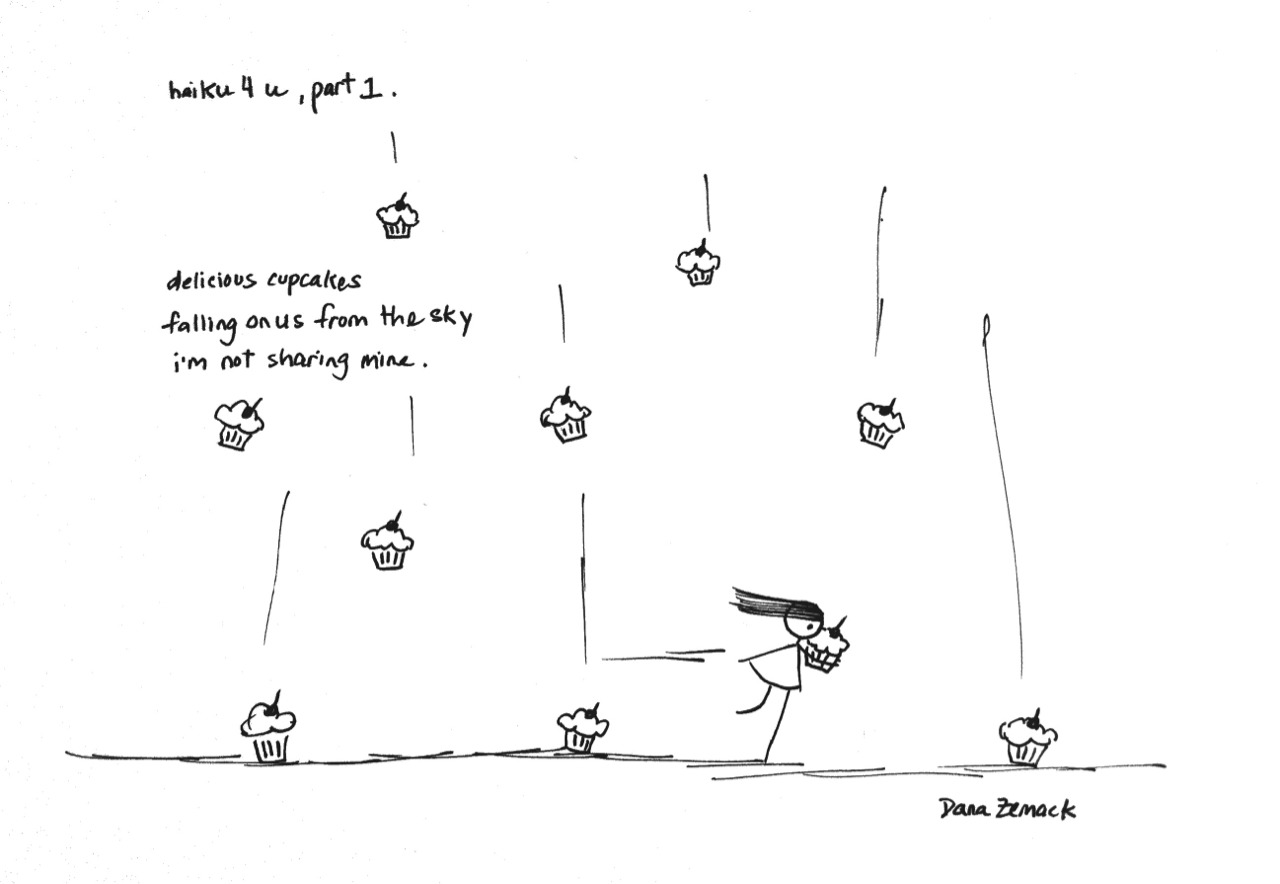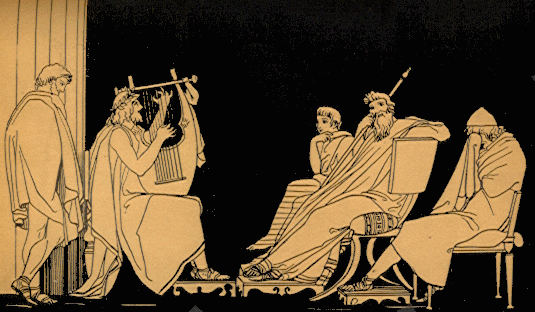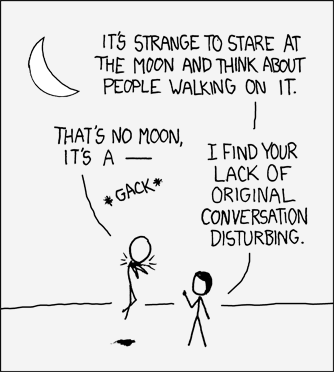75. The Mars Curiosity Rover. People will get mad at me maybe for not putting this higher, but haven't we already landed a bunch of stuff on Mars? I'm including it ONLY because to the extent that we are bothering to explore space AT ALL right now it's amazing, but dropping our space junk on Mars isn't what we're meant to be doing. Remember when humans dreamed? Now, we just bicker about how much we should spend on NPR. I'll put NASA higher when they start earning it.
74. McDonald's Steak-Egg-And-Cheese Bagel. So we went on a driving trip to Florida this past year and took the twins and The Boy with us, and taking a trip with a couple of six-year-olds means stopping at as many restaurants that have playlands as possible. That means McDonald's. Judge me if you want, but the food is good and they put slides in their restaurants. You put a slide in your restaurant, you get families. It's algebra.
I was talked into the Steak-Egg-and-Cheese Bagel by The Boy; typically I'd go for a McGriddle, which, on a scale of human achievement, far far outmeasures the Curiosity Rover. As I said: lots of people have thought "let's put a radio controlled car on Mars." Nobody before McDonalds ever thought "Let's have the pancakes be the bread and somehow taste like maple syrup, too."
But I digress: The Steak-Egg-And-Cheese Bagel was better. I've bought it for breakfast whenever I go there since then, up until recently when, out of a sense of nostalgia and misplaced loyalty I got a McGriddle and was a little disappointed. Plus, I felt guilty for cheating on Steak-Egg-And-Cheese.
73. Her:
72. Substitute teachers who knit. Great, aren't they?
71. Television reporters who run and cook. Great, too, right?
70. Zoe Keating on the cello. Everytime I read or learn about something new, I want to take that thing up, and that goes double for cello, which I have always wanted to play. Zoe Keating should be a household name.
THING THAT SUCKED, BUT MAYBE NOT? I thought it was amazingly cool that Fifty Shades Of Grey became such a mainstream hit that housewives would read it at a mall playground and it could be sold in the checkout aisle of grocery stores. I'm not a fan of the book itself, but I am a fan of erotica going mainstream because I've long thought that people should be able to publish or air whatever they want without worrying about offending someone. The "no nudity or swearing on network TV" rules were always stupid and now are doubly so, and BDSM porn in the supermarket is a sign that our society is getting mature enough to say "you can choose to read it or not."69. Jim Gaffigan's latest stand-up release which we watched on Netflix over the summer. It's called "Mr Universe" and is, as usual, hilariously weird:
What sucked about it was that after it got big, the author signed with Random House to publish a billion copies anyway, even though she already was a big deal. I see that as an author giving in to the old publishing industry to get "mainstream" recognition, a kind of selling out for indie authors: no longer "self-published," the Fifty Shades author had made it in the door many authors dream of budging open - buying her way in by giving Random House a cut of profits she'd have likely made anyway.
The counterargument, of course, is that Random House had the connections to get her book into the supermarkets, making it more of a mainstream success than it would have been. I can acknowledge that argument but I don't give it much credence: Random House saw a giant pile of money sitting there, and took it in exchange for conferring "legitimacy" on an indie author. THAT is likely the wave of the future: "Traditional" publishers will focus on gimmick books like the Lena Dunham proposal -- which cleverly "leaked" only to then see a claim by Dunham that publishing the proposal would wreck her, the literary equivalent of the fake-hacked-cellphone nude pics of a B-list actress, the publicity over the leak providing additional advertisement -- while indie authors struggle to sell their stuff. Once a book makes it big -- Fifty Shades, or Wool, for example -- the traditional publishers will offer that writer a chance to get inside the club, and will continue to hold up "traditional publishing" as a badge of legitimacy.
On the other other hand, every employee at Random House got a $5,000 bonus, I heard, because Fifty Shades did so well, so there's that.
On the other, etc. hand, while that's great, it's too bad Random House didn't use that money to develop and publish 10, 20, 40 writers to keep books going.
68. 27b/6: I don't know how many of these things are true, these things this guy says he does or emails or writes about, but even if they're not true at all, they're oftentimes hilarious.
NOTE: Some of these things I may have known about before 2012. I may even have talked about them. What are you, the year-end list police? It's not a big deal.
67. Argo: Here's the thing about the movie Argo: I knew how it ended and yet I was still tense as the ending happened. That and Ben Affleck's hair looked supercool.
66. Tim Tebow then, and the hope of Tim Tebow in the future: If you DIDN'T think it was incredible when Tebow threw the game-winning touchdown pass against the Steelers in the playoffs last year, then either you hate football or you played for the Steelers. Tim Tebow was the only thing exciting about football in the 2011-2012 season, and the chance of Tim Tebow playing this year was the only thing that kept people from forgetting that the Jets exist. Every football team should be so lucky as to have Tim Tebow play for them. He's as exciting as Brett Favre was, with none of the downside.
65. The Higgs Boson: speaking of things that got us all excited and then disappeared, I'm putting this on the list because apparently Higgs is going to get a Nobel prize for having named something that the supercollider then claimed to have found even though it's not clear that the particle actually exists and at least one study that got ZERO publicity suggested that CERN had not found the Higgs at all. But, hey, science, right? In 2013, we can expect the Curiosity rover to announce that Mars is teeming with Higgs Bosons.
64. Cursing Mommy: the articles that frequently appear in The New Yorker got made into a book this year. I haven't bought the book because I'm worried that too much Cursing Mommy will be the same as when you have too much Wavy Gravy ice cream. But in small doses, Cursing Mommy is hilarious.
Here's a sample, from The Cursing Mommy Cooks Italian:
At some point in your past, all of you have no doubt been under pressure to prepare a dinner party in which everything is really special and “just so.” As it happens, that is the very situation I find myself in tonight, when the party will be for only six—two other couples besides Larry and myself. The men are both clients of Larry’s, and Larry, who is as a rule somewhat worried, anxious, and useless when it comes to almost anything, has been talking rather wildly about how he’s going to be fired and we’ll end up on the street. I know, and you know, that this is another of Larry’s whiny manipulations that his mother was always dumb enough to fall for and I’m not, but, in any case, this dinner party seems to be sort of mandatory, which means the risotto had better be up to par. Now, you may ask, will Larry himself be around during the preparations for this important dinner party?
Well, actually, no. Larry will not—beep-beep-beep-beep-beep-beep-beep-beep-beep-beep-beep-beep-beep-
As you see, when I set out to make a delightful seafood risotto à la vénitienne, I always like to get off on the right foot at the very beginning by HAVING THE FUCKING GODDAM SMOKE DETECTOR GO OFF!!! Fucking goddam piece of useless stupid garbage—what could have set it off? The steam from the fucking dishwasher? beep-beep-beep-beep-beep-beep-beep-beep-beep-beep-beep-beep-beep-
Good stuff, that.
63. Candy canes that taste like other stuff. It wasn't just Oreos that started mimicking other foods in 2012. Sweetie got me some candy canes that manage to do away with 90% of what is awful about candy canes -- the peppermint. Who eats peppermint? Anything flavored with peppermint ends up being like a big mouthful of toothpaste. There's a reason that nobody puts peppermint out as a condiment.
So this year, candy cane makers found a way to make their candy canes taste like pumpkin pie, or S'mores, or other delicious things, making them at least potentially worthwhile again. They still have that candy cane consistency, which is what I imagine "ribbon candy" and those other awful, Depression-era "candies" felt like, but at least they no longer taste like Sensodyne.
62. "Dumb or Smart: The Test" app. I am through question 77. It's not making me feel any smarter. I have the app on my Kindle and lots of nights I would sit and do the test while the boys take their baths. One question, and I'm not proud of this, I solved simply by process of elimination -- guessing a different answer each time until I finally got it right. For a few days, I used about 90% of my brain power trying to figure out why that answer had been right. Now, I can't even remember the question, so I think I'm getting dumber.
61. The opening of The Dark Knight Rises which if I were going to rank it separately would be one step higher than the rest of the movie but remember the numbers don't mean anything, really. For one thing, I tend to think of things in categories -- I might remember a game I liked and then three other games, so I arbitrarily space them out.
But the opening to Rises was great; the rest of the movie was okay, which maybe is because the opening of the movie, and the greatness of the earlier one, Dark Knight, were so excellent that the rest of the movie couldn't compare.
Here's an interesting thought: Christopher Nolan has said that the Batman movies were about how one regular guy deals with being Batman, but I think they were completely not about that; the repeated insistence that anyone can be Batman, the way we learn little to nothing about Bruce Wayne's inner turmoil -- at least not anything beyond what everyone knows -- and the focus on outsized villains who at each step of the way represented something specific in our society (the wizened man with a horrible plan to cleanse humanity of crime, the deranged clown who ignores rules of right and wrong, the bulked-up villain who wants to reform our system could be the political movement/issue of your choice, really) make it seem that the movies were not about what it would be like to be a regular man and be Batman at all.
Can a director be wrong about the meaning of his movies? He can if you subscribe to the My Aunt's Dog Theorem, which, remember, posits that once you let art out, you lose control over it and the viewer gets to put her own meaning on it-- looking at an abstract painting that is meant to represent man's descent from honored creation of God to ignoble servant of the Earth, for example, and saying "That looks like my aunt's dog."
60. "Wait, Wait, Don't Tell Me" quiz show on NPR. I got into NPR in a big way this year, as a result of my disenchantment with sports and my driving more and more for work; ever drive through a strange city and try to find a radio station to listen to? Talk radio is terrible, and FM radio worse. So I got podcasted up this year, and every week I start out with the Wait, Wait podcast, which is how I know that Paula Poundstone is still doing stuff.
What strikes me most about listening to the Wait, Wait, show -- which is a news quiz about stuff that happened the week before -- is how hard you have to work to be a minor player in show business. When you see comedians on TV shows, you tend to think "Man, they've got an easy job." But these guys on the show are playing 5 nights a week AND they write blogs AND they host podcasts AND they're coming into Chicago to be guests on an NPR show every week AND more. They seem to never stop working.
59. Haywire. I can't believe this movie made a lot of "Worst Of" lists -- I loved it. The movie never stops and rarely slows down and was like those Bourne movies but more action packed and with a better-looking lead. Great fights, great stunts, and the minimalist plot meant that it was hard to poke holes into it after the fact.
58. Counting In C: if you followed my attempts to get in shape this year over on Thinking The Lions you might have already heard this song. I had never heard of "In C" before hearing about this on a podcast. Here is how Wikipedia describes the work "In C":
In C consists of 53 short, numbered musical phrases, lasting from half a beat to 32 beats; each phrase may be repeated an arbitrary number of times. Each musician has control over which phrase he or she plays: players are encouraged to play the phrases starting at different times, even if they are playing the same phrase. The performance directions state that the musical ensemble should try to stay within two to three phrases of each other. The phrases must be played in order, although some may be skipped. As detailed in some editions of the score, it is customary for one musician ("traditionally... a beautiful girl," Riley notes in the score)[2] to play the note C in repeated eighth notes, typically on a piano or pitched-percussion instrument (e.g. marimba). This functions as a metronome and is referred to as "The Pulse".
In C has no set duration; performances can last as little as fifteen minutes or as long as several hours, although Riley indicates "performances normally average between 45 minutes and an hour and a half." The number of performers may also vary between any two performances.
Which fascinated me when I heard about it because that is letting musicians see their aunt's dog in a piece, first off, and secondly, that is how I played classical music when I learned piano: I played it more or less the way I liked it, in part because I was bad at reading music and in part because that was how I liked it. So the idea of a piece of music that can be played by hundreds of musicians at once... each playing something of their own invention, really, based on an underlying work... was incredible.
"Counting In C" is by a guy named Jad Abumrad; it includes snippets of talk from a podcast in which numbers were considered, and in which I learned that children don't really grasp numbers until they are four. I tend to pay attention when people talk about how kids learn, for obvious reasons. Jad made it as part of a college orchestra's project to update and remix "In C".
This song, then, combines abstractions, weird new music, thoughts of my kids, and just a great melody:
57. Spider-man died? I haven't read the comic book yet, and probably won't because I'd have to go back and get all the back issues to get the whole story, but here's what I know: Spider-Man died, or at least Peter Parker did, on December 26. The storyline apparently was that Doctor Octopus and Spider-Man had switched bodies, and Peter Parker was stuck in Doc's dying body... and was unable to get out in time. So Peter's dead and Doc is in Peter's Spider-body, and all the stories about it say that Doc uses that as inspiration to become an even-better Spider-Man than Peter was. Or he'll try.
Apparently, people were so mad about this that the writer got death threats, which, again: REALLY, AMERICA? First, you people were going to march on Washington or something to protest the Green Bay Packers losing a football game and now you send death threats over a comic book character? Sometimes I want to resign my human race card.
But anyway: I loved this storyline. Among the much-hyped "reboot" of the DC Comics and the general mediocreness of comics whenever I see them, this seemed great. Not just because it killed off a major character; we are about this close (which is really close) to that becoming trite; when George R.R. Martin Presents Lord Of The Rings With Nudity This Time killed off a major character, that just demonstrated that, like having your God be a weird guy or homeless woman or something, killing-major-character was about to lose its cache as a plot device.
So that's not it. What is it is that the idea of a major villain taking over the body of a major hero, a hero he'd vowed to destroy, suddenly decides to become that hero, giving all the glory to the person he hates and trying to keep himself motivated to keep doing that.
Imagine the possibilities, there. If you thought Breaking Bad was good (I never really watched it) then consider the difficulty of being not a good-guy-gone-bad but a bad guy who owes his very life (and is living the life of) the person he vowed to kill.
Wow.
I'm sure it'll be a dream sequence but for the moment, Spidey being dead is better than the Higgs Boson. (So, yeah, the numbers mean a little bit.)
56. Portlandia:
But first, a THING THAT SUCKED: TUMBLR. Or rather, its impact on humor or maybe the way it demonstrated the fallacy of humor. This year was marked by TUMBLR memes and the death of humor as a thing, in a way.
Here is how 102% of all TUMBLR's work: See something in the news. REPEAT IT AN INFINITE NUMBER OF TIMES until your soul is numb.
Eli Manning Looking At Things. Binders Full of Women. Mickayla Is Not Impressed. Drunk Baby. Texts From Hillary.
GAH.
The really really bad thing about TUMBLR is this: like about 95% of Saturday Night Live sketches, the joke is not only in the title, but the joke is over and dead by the time you read the title. "Eli Manning Looking At Things" is an example: To get the joke, you need have no context. It's just Eli Manning and his cell phone, photoshopped into a variety of photos. And that's the same thing with all those dumb TUMBLR things.
I have made TUMBLR-type memes mostly to show how easy it is, and I've gotten bored while making them. But these things have sucked up the Internet in a way that Cracked and it's swearing-lists could only dream of.
We need them to stop. Here is my rule for when I talk about stuff: I talk about things when I have something to add to them. That's how pop culture makes its way onto this blog. I don't just hold something up and say "Look at this." I hold something up and say "here is something new and previously unsaid about that thing." INTERNET: If you have nothing unique to say about something, then all you are doing is coloring in a coloring book -- or less. If I see one more TUMBLR about freaking nothing I am going to die a sad tiny invisible death inside and stare out at the world through soulless eyes.
(HEY: IDEA: WHAT ABOUT A TUMBLR CALLED "THE ENTIRE JOKE IS CAPTURED IN THE TITLE?")
I AM GOING TO BE RICH.
Anyway: Portlandia is the anti-TUMBLR. It could have been a TUMBLR because the whole joke is right there: PEOPLE IN PORTLAND ARE CLUELESS HIPSTERS GAH.
But it's somehow more than that. From the skit where the guy offers a ride to the cellist but can't get the instrument in his tiny car to the effort to redecorate the police uniforms to the absolutely-awesome one where the two get sucked into Battlestar Galactica so hard that they try to recreate it, Portlandia manages to take the one-thought-joke that is exemplified by EVERY TUMBLR EVER -- again, they just keep telling the same joke, over and over--
-- but Portlandia manages to build on that simple, one-note idea (much like In C! Hey, there's a theme today!) -- and universalize it, making each new skit feel fresher.
55. Martian Lit, and especially "The Many Lives Of Yelena Moulin." Martian Lit got way better when I could get it on my Kindle, as I'm not crazy about reading on a laptop. The site features some crazy good sci-fi stories, and as Yelena Moulin was the first one I read there, I'm highlighting it: the story of a sex-performer who is killed and reincarnated as a set of memories inhabiting a computer body to serve as a therapist for a rich man is everything sci-fi should be.
54. Lightspeed Magazine: Speaking of sci-fi (see why I spread these things out)? Lightspeed Magazine has a free podcast where they read one story-per-podcast, and many of them are great short sci-fi stories. None of them was greater than "My Wife Hates Time Travel," which I thought was an entirely novel concept and was so good it made me hate that I hadn't thought of it.
53. American Dad. There was once a comic I saw that was titled something like "How To Write A Seth MacFarlane Show"; you had to choose from several lines: "Fat Dumb Dad," "Improbably Hot Housewife" "Talking Pet" and the like.
There's no doubt that Macfarlane has a formula -- but I no longer hold that against him any more than I hold it against John Grisham (which is to say: Quite a lot, maybe.) After not having watched Family Guy for a long time, I got back into it this year via American Dad which, to be honest, I began putting on Netflix on my computer at work as background noise when I got tired of music and had listened to/watched Better Off Ted and Arrested Development too much. (I always have something on in the background, because otherwise it's just me and my thoughts. SCARY.)
American Dad grew on me because it wasn't "Family Guy." There are similarities, sure, but the two shows are different enough that nobody ought to be picking on Macfarlane. Then again, my rules for picking on people are "If they make lots of money, go ahead and pick on them because they probably don't care." So make fun of him.
But American Dad manages to be funny and different from Family Guy, and, more importantly, avoids (so far as I can tell) that number one trap of the cartoon show, the movie parody episode. THAT is lazy writing. I hate the movie parody episode.
Best American Dad? "Stan of Arabia," where Stan the CIA Agent gets transferred to Saudi Arabia, where he decides to give up his citizenship.
52. The Silent Land, by Graham Joyce. I talked about this book here. But it deserves to be on this list.
51. A Softer World, the comic strip. I try to start my day by reading these. It doesn't always help me be in a better mood, but I am more thoughtful. Weird, funny, and many times, sad. Here's a sample:






















